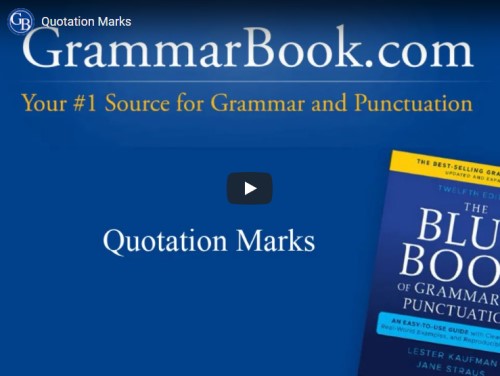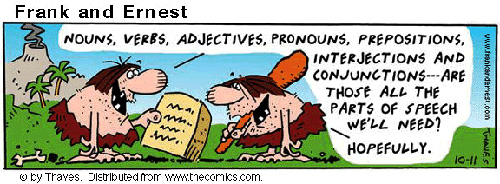|
For All Intents and Purposes vs. For All Intensive Purposes
|
|
You've probably heard this expression used a couple of different ways. You may also have wondered which one is correct and where the confusion comes from. Let's break down what you should write and say, what the phrase means, and why there is confusion about it.
Is For All Intents and Purposes Right, or Is It For All Intensive Purposes?
Let's start with the information you need most. The correct phrase is for all intents and purposes. Although you will hear it said (and occasionally spelled) differently, this is the usage to stick to because it is grammatically correct, and it works logically as well.
The mistaken common phrase for all intensive purposes is close to the desired meaning but is not correct. It also doesn't really make sense. To understand why, we have to get to the heart of the phrase.
What Does For All Intents and Purposes Mean?
This phrase means "essentially." If it strikes you as legal speak, then you have a good eye. Dating back to at least the 1500s, the phrase was used by lawyers to make blanket statements. For example, they could say, "For all intents and purposes, a partnership agreement joined two companies into one." It was a way to include many different ideas or circumstances without having to specify each one.
The terminology caught on and is still in wide use today. Usually, native speakers of American English will apply this phrase when they are trying to make a point about one thing being equal to another. For example, they might say, "There are a couple of minutes left to go, but for all intents and purposes, this game is over."
That probably all seems clear enough, so why is the wording so often mixed up?
Why Some People Say For All Intensive Purposes
You've probably heard this alternate phrasing many, many times. The reason is simple: Intents and purposes sounds very similar to intensive purposes. And even though intensive purposes doesn't really make sense, it has been repeated enough to catch on.
Given that intensive means "deep," intensive purposes doesn't actually mean anything as a phrase. However, because this set of words is so often misspoken, the average listener may not even notice the difference even if they are aware it's incorrect.
The bottom line? If you want to be grammatically accurate, say for all intents and purposes, the wording that will show your attention to proper American English.
|
View and comment on this
article on our website.
|
|
|

|
 |
The Blue Book of Grammar and Punctuation
by Lester Kaufman and Jane Straus |
The Authority on English Grammar! Twelfth Edition Now Available
An indispensable tool for busy professionals, teachers, students, homeschool families, editors, writers, and proofreaders.
Available in print AND as an e-Book! Over 2,000 copies are purchased every month!
To order the book, simply click the link to order the book from the GrammarBook.com website.
|
Free BONUS Quiz for You!
[[firstname]], because you are a subscriber to the newsletter, you get access to one of the Subscribers-Only Quizzes. Click here to take a Spelling Quiz and get your scores and explanations instantly!
We will be adding many more quizzes this year to our already substantial list of them. If you have suggestions for topics we have not yet covered, please send us a message at help@grammarbook.com.
|
Hundreds of Additional Quizzes
at Your Fingertips
Subscribe now to receive hundreds of additional English usage quizzes not found anywhere else!
Teachers and Employers
Save hours of valuable time! You may assign quizzes to your students and employees and have their scores tallied, organized, and reported to you! Let GrammarBook.com take the hassle out of teaching English!
"Fun to test my skills."
"The explanations really help ... thanks!"
"I can select the quizzes to assign to my students, and then the results are reported to me automatically!"
If you think you have found an error in a quiz, please email us at help@grammarbook.com
|
Wordplay

|
 |
English in a Snap:
68 One-Minute English Usage Videos FREE |
Learn all about who and whom, affect and effect, subjects and verbs, adjectives and adverbs, commas, semicolons, quotation marks, and much more by just sitting back and enjoying these easy-to-follow lessons. Share them with your colleagues (and boss), children, teachers, and friends as well! Click here to watch.
|
|





